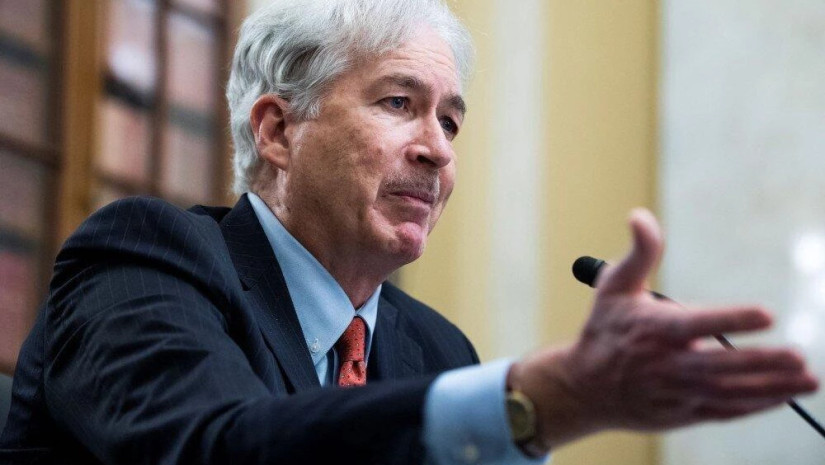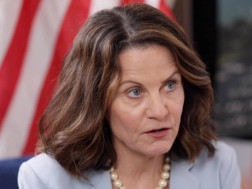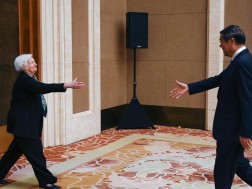The director of the Central Intelligence Agency was in Turkey Monday to warn his Russian counterpart against using nuclear weapons, a White House spokeswoman said.
William Burns isn’t holding talks on Ukraine, the spokeswoman said, and “is not discussing the settlement of the war.”
“He is conveying a message on the consequences of the use of nuclear weapons by Russia, and the risks of escalation to strategic stability,” the spokeswoman said, as well as discussing the cases of detained American citizens.
The Kremlin didn’t immediately respond to a request to confirm the meeting had occurred or to comment on the nature of the discussions between Mr. Burns and any Russian officials, including Sergey Naryshkin, director of Russia’s Foreign Intelligence Service, who is Mr. Burns’s Russian counterpart.
Earlier on Monday, presidential spokesman Dmitry Peskov told reporters he could neither confirm nor deny reports about a meeting between senior U.S. and Russian officials in Ankara.
Messrs. Burns and Naryshkin met in Ankara as guests of the Turkish National Intelligence Organization, the country’s main spy agency, according to intelligence officials quoted by Turkey’s state-run news agency, Anadolu
Mr. Burns, who had a more than three-decade career at the State Department including as ambassador to Russia, has often taken on secretive, difficult missions for President Biden.
In November 2021, he traveled to Moscow, where he met senior Russian officials and talked by secure phone with Russian President Vladimir Putin, warning them of significant consequences for any invasion of Ukraine. And in January, ahead of the Russian invasion, the U.S. dispatched him to Berlin and Kyiv to press European nations to rally around a tougher response against Moscow and in support of Ukraine.
The CIA chief, who can travel more discreetly than a president or secretary of state, also has met with Taliban leaders in Kabul, as well as with allies with whom the U.S. has ticklish relationships, such as Saudi Crown Prince Mohammed bin Salman and Pakistani spy chiefs.
The CIA declined to comment on Mr. Burns’s talks in Turkey, referring questions to the White House.
Even before ordering his forces into Ukraine, Mr. Putin started to ratchet up warnings that he could use nuclear weapons. On Feb. 20, four days before the full-scale invasion, the Russian leader said he would target the U.S. with new advanced weapons if Washington deployed intermediate-range missiles in Europe.
Over the course of the war, now in its ninth month, Mr. Putin has continued to play the nuclear card. In March, he put Russia’s nuclear forces on high alert. Since then, he has repeatedly raised the specter of nuclear war, invoking his country’s atomic arsenal and also announcing imminent plans to launch Russia’s first unmanned nuclear submarine.
U.S. officials, meanwhile, have said they had seen no intelligence prompting them to boost the U.S.’s nuclear posture.
The Kremlin leader’s nuclear rhetoric increased as Russian forces faced severe setbacks on the battlefield, and Mr. Putin implied he would consider using nuclear weapons in Ukraine to counter any threat against Russia’s territorial integrity.
Then last month, Mr. Putin appeared to back off from such threats, saying at a policy conference in Moscow that his country had no intention of using nuclear weapons in Ukraine and suggesting that was speculation.
“We have never said anything on our own initiative about the possible use of nuclear weapons by Russia,” he said, “but only hinted at it in response to statements made by the leaders of Western countries,” WSJ reports.
















